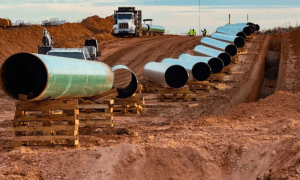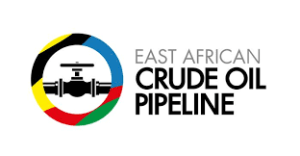A French court on Tuesday 28th February 2023, dismissed a landmark case against TotalEnergies for a massive oil project in Uganda and Tanzania following the filing of a lawsuit by several nongovernmental organizations to stop the project. The suit was filed by two French and four Ugandan NGOs, with allegations accusing TotalEnergies of taking land from more than 100,000 people without adequate compensation.

It was the first case of its kind in France, and activists had hoped it would set a legal precedent to halt projects deemed harmful to the environment and human rights.
The NGOs that filed the suit allege that the East African Crude Oil Pipeline (EACOP) violated a 2017 law that obligates companies to avoid grave harm to human rights, health, safety, and the environment.
The court on Tuesday ruled the case was “inadmissible”, saying the plaintiffs did not correctly follow court procedures against the French energy giant.
It said the plaintiffs submitted accounts to the court in December that were “substantially different” from those that were presented to Total Energies in a formal notice in 2019 when the case was initiated.
They also said the company drilled wells in the biodiversity-rich Murchison Falls National Park on the shores of Lake Albert.

Friends of the Earth and Survival, the two French NGOs, and the Ugandan groups denied having substantially modified their submissions to the court.
They “only clarified them and consolidated their arguments with more than 200 documents of supporting evidence”, said Juliette Renaud, a campaigner with Friends of the Earth.
The $10 billion worthy oilfields and pipeline project has been hailed as an economic boon for Uganda and Tanzania, which expect to yield great returns to the economies of the two nations, while being opposed by environmentalists.
The project is being jointly developed by TotalEnergies and the China National Offshore Oil Corporation (CNOOC), along with the Uganda National Oil Company.
The 1,443-kilometre (900-mile) pipeline will transport crude from vast oilfields being developed in Lake Albert in northwestern Uganda to a Tanzanian port on the Indian Ocean.
Lake Albert, a natural border between Uganda and the Democratic Republic of Congo, lies atop an estimated 6.5 billion barrels of crude, of which about 1.4 billion barrels are currently considered recoverable.
Tanzanian Energy Minister, January Makamba this month rejected the environmental and rights concerns as “propaganda”, saying the country complied with environmental, safety and human rights standards.

Tuesday’s ruling in France is the first instance of the “duty of vigilance” being tested in a courtroom.
Several legal proceedings for failure to comply with the “duty of vigilance” are underway against other French companies, including Casino, Suez, Yves Rocher and BNP Paribas.
